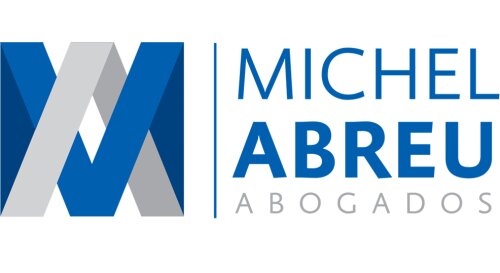Best Immigration Lawyers in Dominican Republic
Share your needs with us, get contacted by law firms.
Free. Takes 2 min.
Or refine your search by selecting a city:
List of the best lawyers in Dominican Republic

Arciniegas Abogados, Attorneys at Law
30 minutes Free ConsultationAbout Immigration Law in Dominican Republic
The Dominican Republic is a vibrant country with a growing economy, making it an attractive destination for tourists, expatriates, and foreign investors. The nation has specific regulations governing immigration to manage the flow of people entering and residing in the country. The Dominican Republic offers various visas and residency permits tailored to different needs, such as work permits, investment opportunities, and family reunification. Immigration law here aims to balance the promotion of economic growth with national security and social integration.
Why You May Need a Lawyer
Immigration laws can be complex and challenging to navigate without professional assistance. A lawyer specializing in immigration can provide valuable support in several situations, such as:
- Understanding visa types and eligibility requirements
- Preparing and submitting residency or citizenship applications
- Dealing with legal disputes, deportations, or appeals
- Advising on legal documentation and compliance with immigration policies
- Facilitating business immigration or the establishment of a company by a foreign national
Local Laws Overview
The Dominican Republic's immigration framework is governed primarily by the General Immigration Law No. 285-04. Key aspects include:
- Visa and Residency Types: There are several types of visas, including tourist, work, business, student, and family reunion visas. Residency can often be temporary or permanent, each with distinct requirements.
- Work Permits: Foreign nationals wishing to work must generally obtain a work permit, often linked to their employer.
- Renewals and Extensions: Many visas and residencies must be renewed periodically, requiring attention to documentation and deadlines.
- Naturalization: Pathways to citizenship involve residency duration requirements, language proficiency, and other criteria.
Frequently Asked Questions
How can I apply for a tourist visa to the Dominican Republic?
You can apply for a tourist visa by visiting the nearest Dominican consulate. You'll need a valid passport, a completed application form, a recent passport-sized photo, and proof of financial means.
What is the process for obtaining a work permit?
To obtain a work permit, you must first secure employment. Your employer will typically handle the initial application, which must be approved by the Ministry of Labor and the Directorate of Immigration.
Can I obtain residency if I invest in property in the Dominican Republic?
Yes, the Dominican Republic offers investor residency options for those making significant real estate or financial investments. Specific thresholds and conditions apply.
How long can I stay in the Dominican Republic with a tourist visa?
A tourist visa generally allows stays up to 60 days. Extensions can sometimes be granted by the Directorate of Immigration under specific circumstances.
Is health insurance mandatory for expatriates in the Dominican Republic?
While not strictly mandatory, health insurance is strongly recommended. Proof of insurance may be required for some visa categories.
How can expatriates enroll their children in local schools?
International and private schools are available, and most require documentation such as proof of residency, vaccinations, and prior school records.
Do I need to pass a Spanish language test for permanent residency?
While understanding Spanish is beneficial, formal language testing is generally only required for naturalization, not residency.
Can I work as a student in the Dominican Republic?
Student visa holders might be able to work with certain restrictions and conditions. It’s important to check the specific terms when applying for a student permit.
What should I do if I overstay my visa?
If you overstay your visa, you should regularize your status as soon as possible. Penalties may apply, and it's advisable to contact the Directorate of Immigration or seek legal advice.
Are there pathways for refugees or asylum seekers?
The Dominican Republic has procedures in place for asylum seekers, aligning with international agreements. Legal advice is crucial for navigating this complex process.
Additional Resources
The following resources can provide further assistance to those seeking immigration information in the Dominican Republic:
- Directorate of Immigration: The main governmental body responsible for matters related to immigration.
- Ministry of Foreign Affairs: Offers information on visa applications and consular services.
- Permanent Mission of the Dominican Republic to the United Nations: Useful for understanding international aspects of immigration.
- Expatriate and Community Organizations: Groups like "Dominican Immigrant Support" can offer community-based advice and support.
Next Steps
If you need legal assistance regarding immigration in the Dominican Republic, consider taking these steps:
- Contact a reputable immigration lawyer or law firm specializing in Dominican immigration law.
- Prepare all relevant documentation, including identification, financial records, and any existing visa or residency papers.
- Consider setting up an initial consultation to discuss your situation, goals, and the legal pathways available.
- Stay informed about any changes to immigration law by checking updates from authorized sources like the Ministry of Foreign Affairs.
Lawzana helps you find the best lawyers and law firms in Dominican Republic through a curated and pre-screened list of qualified legal professionals. Our platform offers rankings and detailed profiles of attorneys and law firms, allowing you to compare based on practice areas, including Immigration, experience, and client feedback.
Each profile includes a description of the firm's areas of practice, client reviews, team members and partners, year of establishment, spoken languages, office locations, contact information, social media presence, and any published articles or resources. Most firms on our platform speak English and are experienced in both local and international legal matters.
Get a quote from top-rated law firms in Dominican Republic — quickly, securely, and without unnecessary hassle.
Disclaimer:
The information provided on this page is for general informational purposes only and does not constitute legal advice. While we strive to ensure the accuracy and relevance of the content, legal information may change over time, and interpretations of the law can vary. You should always consult with a qualified legal professional for advice specific to your situation.
We disclaim all liability for actions taken or not taken based on the content of this page. If you believe any information is incorrect or outdated, please contact us, and we will review and update it where appropriate.
Browse immigration law firms by service in Dominican Republic
Dominican Republic Attorneys in related practice areas.
Browse immigration law firms by city in Dominican Republic
Refine your search by selecting a city.














